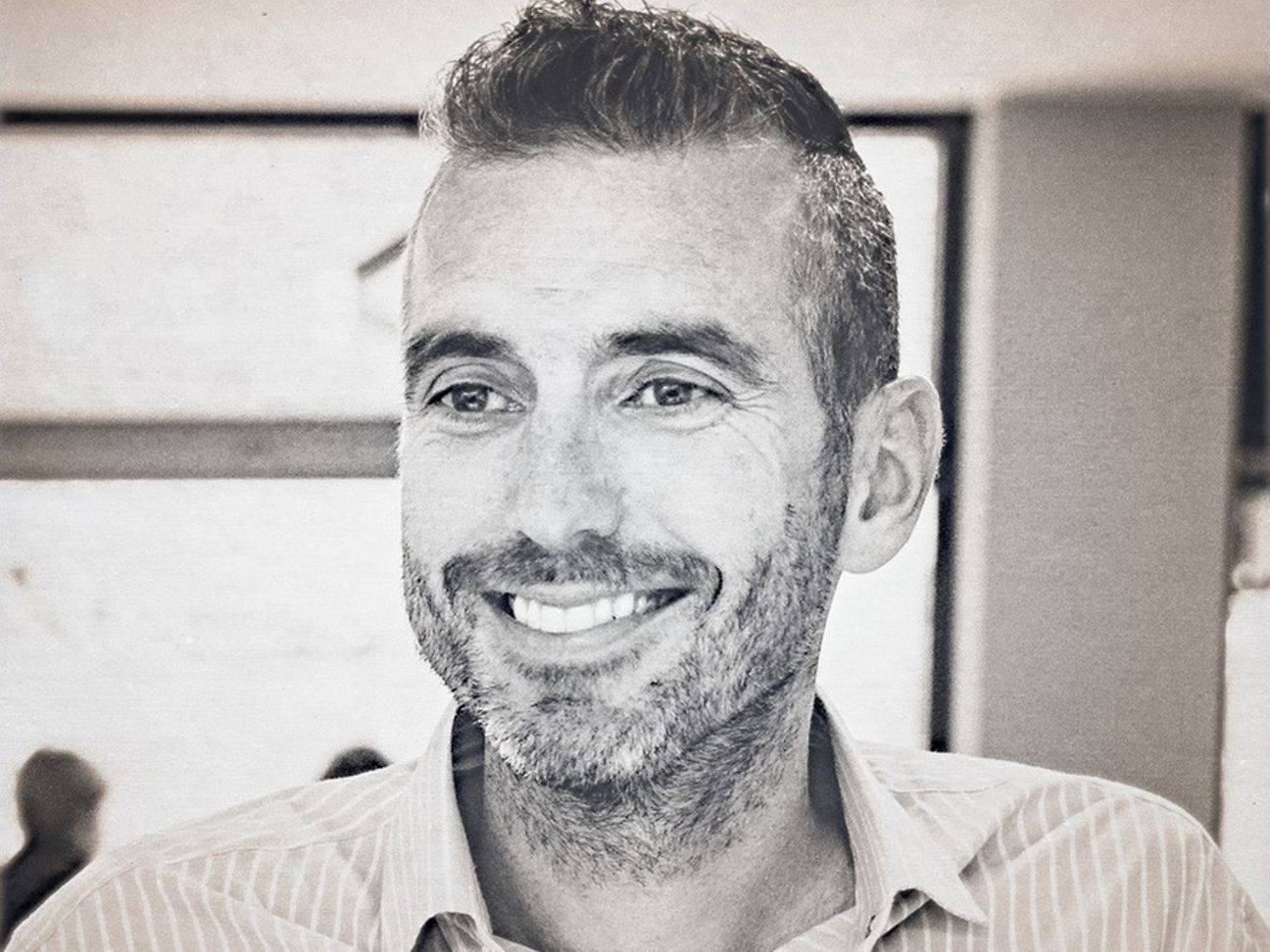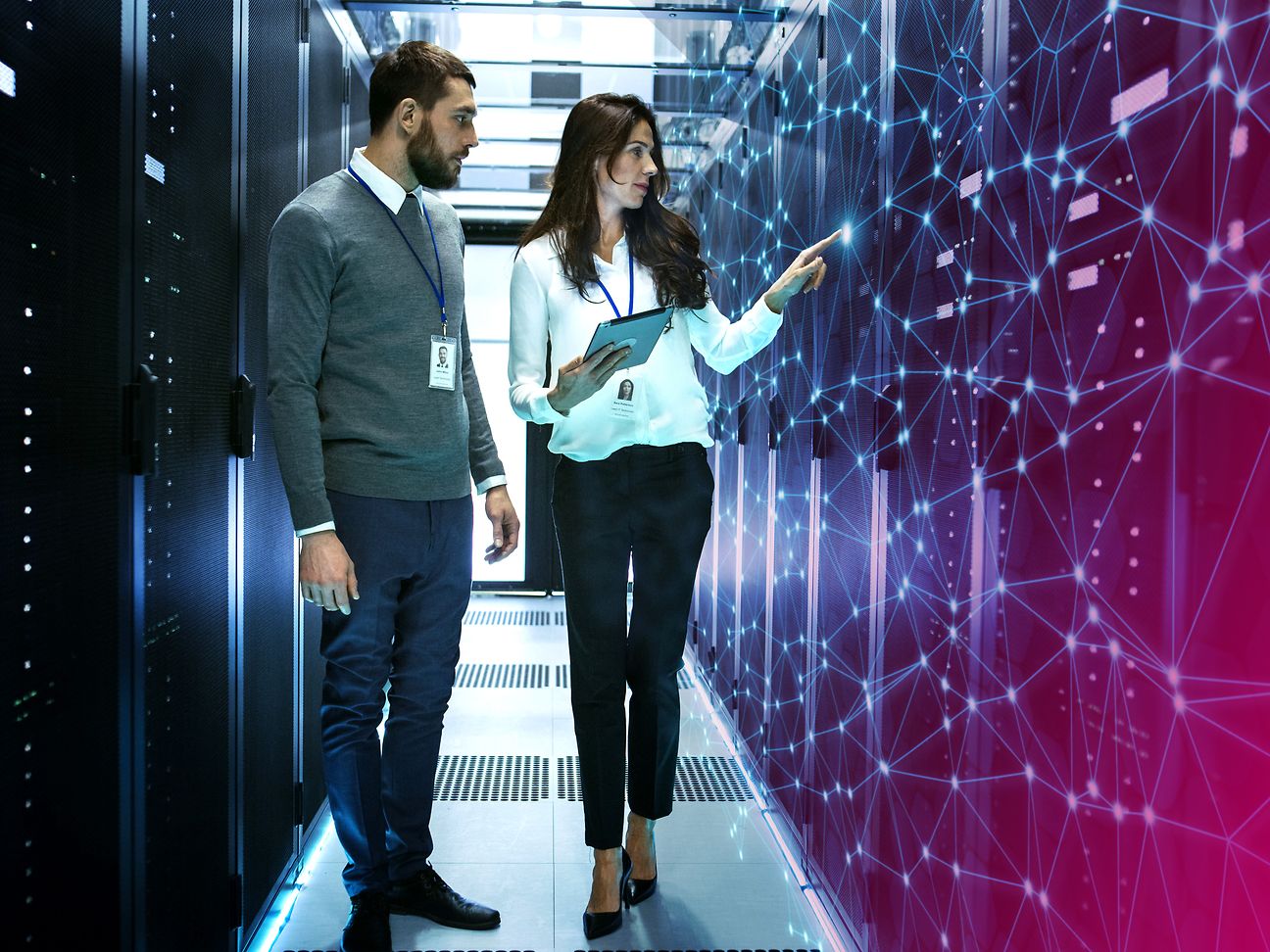

The blockchain never sleeps
The blockchain continues to pick up speed. Deutsche Telekom itself is also active here and participates in Ethereum, Polkadot and Polygon, among others. Dirk Röder explains in an interview why blockchain is an important technology and how Deutsche Telekom is shaping the future on the Web3 with its infrastructure. He develops and supports blockchain and Web3 solutions with his team at Deutsche Telekom MMS.
How do you explain Web3 and blockchain?
Dirk Röder: Web1 and Web2 are mainly about pure information exchange. Google and Facebook have a central market position here. Web3 is often referred to as the decentralized Internet of values. For this, databases are created that are distributed across several computers and locations. This decentralized data structure prevents monopoly positions. In Web3, users again own and control data using blockchain technologies. They exchange information and value globally on this shared, trusted platform. In short, in Web3, you retain control, data sovereignty over your information and values. You decide who can use which information and for how long. And you take responsibility for and manage your access independently with your digital wallet.
What role does Deutsche Telekom MMS play as an infrastructure provider for Web3?
Dirk Röder: Our business model is very simple. We provide our cloud infrastructure for blockchain networks such as Ethereum or Polkadot. These are so-called "nodes", for example nodes in the network that record transactions and thereby secure the blockchain as "guardians". We are, so to speak, an enabler for the "blockchain highways”. For this service, we get paid in cryptocurrencies. At the same time, we give Web3 the necessary security for future applications.
"Over 60 million euros of assets are on our infrastructure."
Which blockchain networks do you currently support?
Dirk Röder: Eight blockchain networks with over 200 validators trust us. Currently, over 60 million euros of assets from Chainlink, Ethereum, Celo, Q, Flow, Polkadot, Polygon and Energy Web are on our infrastructure.
What applications in Web3 could use the Deutsche Telekom infrastructure in the future?
Dirk Röder: Over 2 billion people worldwide do not have their own bank account. Receiving or sending money in seconds and almost free of charge is vital for their survival. With the blockchain, people can transfer money from A to B worldwide. And this always and at any time, because the Blockchain knows no weekend. All they need is a smartphone and internet. The digital money transfer via Celo, for example, does without a middleman. There is no bank standing between you, me and the transfer. That makes the Celo network a public digital payment system. It's accessible to everyone and owned by no one.
"The blockchain has no weekend."
When will secure trading of shares on the blockchain come?
Dirk Röder: Until now, securities such as shares have always been tied to central platforms and stockbrokers. The German government's “Zukunftsfinanzierungsgesetz” creates a basis in Europe for trading securities on decentralized technologies such as the blockchain. Tokenization of real assets enables globally independent digital exchanges that are securely and transparently mapped on a common blockchain. More and more assets such as stocks, bonds or real estate can be found as digital assets - also called real world assets or RWAs - on public blockchains. Especially Polkadot, Ethereum or Polygon are pioneers here. They are popularly chosen due to their advanced technology and high security standards. According to Wepex management consulting, around one-third of all securities are expected to be represented as crypto-securities by 2026.
Where do you see Web3 in the future?
Dirk Röder: Similar to the development of the Internet, only the necessary speed and resilience of this technology has made complex applications possible. We will see more and more applications on scalable blockchain ecosystems in the future. Web3 enables financial inclusion of all populations and has the potential for true mass applications. For example, we just recently went online with our Energy Web node, the first public blockchain on the energy grid. Millions of digital energy market participants can be securely connected in the future. Tracking green energy will also be made easier. Web3 offers participants the opportunity to actively shape the energy market. For me, Web3 accelerates the digital connectivity to society.

